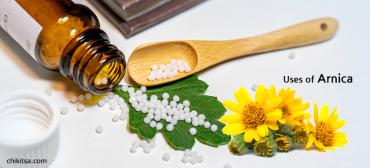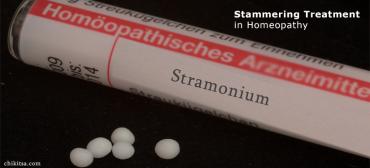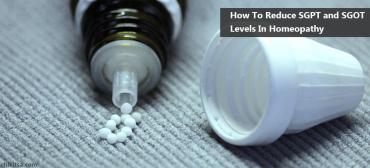Can Homeopathy Cure Anxiety And Depression?

Mental disorders like anxiety and depression are seeking help and treatment from a psychiatrist used to be considered a taboo and the people who were dealing with disorders like anxiety and depression were often outcast from the society, so much so that even their family members refused to accept these conditions as disorders.
In the last few years, there has been an increase in awareness of mental health and its disorders, especially through social media platforms. We have also witnessed people acknowledge these disorders openly.
With an increase in the acceptance of mental disorders among people, there is also a noticeable increase in awareness about the benefits that homeopathy has to offer to people suffering from them. People are now looking beyond anti-depressants and anti-anxiety pills to better treatment options with lesser side effects and favorable improvement. This article will help you understand more about the scope of homeopathy medicine for anxiety and depression.
What Is Anxiety?
Each person has experienced anxiety on someday or the other due to any reason. While some people get through it and resume their daily activities without hindrance; a few people may continue to experience anxiety for as long as several days or weeks.
Anxiety is one of the commonest mental disorders seen commonly among women. Anxiety disorder can make it difficult for people to carry out their daily routine like work, study and even socializing often resulting in financial strain and increased personal suffering.
Anxiety disorders include the following major categories;
- Panic disorder
- Specific phobia
- Social phobia
- Obsessive-compulsive disorder
- Acute stress disorder
- Post-traumatic stress disorder
- Generalized anxiety disorder
Some of the causes of anxiety are;
- Traumatic or stressful events
- Family history of anxiety disorders
- Developmental issues during childhood
- Other medical or psychiatric problems
- Certain medications, alcohol or substance abuse.
Symptoms of Anxiety
All anxiety disorders have a few common features;
- Excessive and irrational fear
- Apprehension
- Difficulty in conducting daily tasks or distress related to these tasks.
Anxiety disorders can affect individuals on the following planes resulting in certain signs and symptoms;
1. Cognitive
This includes anxious thoughts and beliefs. The shift of attention suddenly to a possible threat leading to a mild form of worry to extreme terror
2. Physical
Includes a feeling of palpitations, increase in heart rate, shallow and quick breathing, sweating, trembling or shaking, light-headedness or dizziness muscle tension, “feeling weak in the knees", nausea and even shortness of breath
3. Behavior
Avoidance of fearful situations, excessive talking during anxiety, safety behaviors (constantly keeping a phone in hand or taking self-defense classes)
What Is Depression?
Depression is a mental disorder which presents with features like;
- Depressed mood
- Lack of interest
- Reduced energy levels
- Disturbed sleep and appetite
- The feeling of guilt or low self-worth
- Poor concentration
When a set of these features persist over a period of few days to several weeks or even months, it is called depression. Depression contributes majorly to the global healthcare burden. Nearly 350 million people worldwide are affected by depression. Nearly 1 million lives are lost due to suicide caused by depression.
Symptoms Of Depression
Depression linked to low productivity at work, reduced efficiency and inability to perform everyday tasks and responsibilities. Signs and symptoms of depression can be explained on the basis of two categories of depression:
1. Depressive Episode
These episodes may be mild, moderate or even severe. Depressive episodes may present with;
- Depressed mood
- Lack of enjoyment or enthusiasm
- Lack of interest
- Early fatigue
- There may be some difficulty in continuing daily activities
2. Bipolar Affective Disorder
This consists of both maniac as well as depressive disorders Maniac disorders involve;
- The sudden elevation of mood
- Increased energy levels resulting in hyperactivity
- Excessive talking
- Reduced sleep or inability to sleep
Homeopathy Medicines For Anxiety And Depression
The homeopathic system of medicine believes in prescribing remedies based on symptom similarity. This is often done after an elaborate case taking.
The conventional treatment of mental disorders generally has so-called “blemishes†or side effects ranging from nausea, headache, irritability, and insomnia. Long term effects of these medications and well their interactions with other medicines are still unknown. An additional problem faced with using conventional treatment is that they do not fully cure the patient and patients are often required to take these medicines for long periods of time and sometimes even the rest of their lives.
Several controlled clinical trials have been conducted for the treatment of anxiety and depression with homeopathy. Each study has shown some form of a favorable result.
Some commonly used homeopathic medicines for anxiety and depression along with the indications for prescription are;
1. Aconite
- Commonly indicated for females with a sedentary lifestyle.
- The patient is very fearful and anxious
- Is afraid to go out into crowded places, is afraid to cross the streets
- Patients life is often made miserable due to constant fear and anxiety
- The patient often predicts the day of his/her death
- Marked fear of death during pregnancy
- Very restless due to anxiety, changes places constantly, does everything in a haste
- Even the smallest sound startles the patient
- Even the slightest pain is intolerable
- Becomes pale and falls due and is scared to rise up again
2. Gelsemium
- Especially suited to children and women who are hysterical and nervous
- Physical or mental complaints of the patient often arise due to bad effects of sudden movements, bad news, fear or fright
- Depression from the heat of the sun or summer
- The patient has stage fear; diarrhea due to anxiety before appearing in front of a crowd. For example, a public speech, theatre
- Anxiety causes weakness and trembling of hands and legs
3. Arnica
- Patients suiting arnica suffer from effects of mechanical injuries, both immediate and remote
- The patient complains of a characteristic “sore lame bruised feelingâ€
- This remedy is suitable for post-traumatic stress disorder.
- Slightest pain is unbearable.
- Patients constantly move and change positions to become comfortable, everything on which he lies seems too hard.
- Due to increased sensitivity to pain, the patient avoids going out to the streets; he/she is fearful of being touched or struck by people
4. Argentum Nitricum
- This remedy is typically indicated for physical complaints arising from unusual or long-continued mental exertion
- The patient is apprehensive before attending any event which involves meeting a lot of people
- The patient is very impulsive, walks in a haste, does all his/her work in a taste
- Patient explains a constant feeling is “time passes too slowlyâ€
5. Ignatia
- This remedy is suited for sensitive women, who are quick to perceive and of a nervous temperament
- A sudden change of mental condition from joy to sorrow, from laughing to weeping
- Patients given Ignatia often reveal a history of grief either from disappointed love or from loss or death of a loved one, shame or mortification
- A person is mentally and physically exhausted from grief. Sighs frequently and involuntarily.
- Want to be alone. Broods over imaginary troubles when alone.
- Impatient, irresolute, quarrelsome, easily disturbed, easily offended from slightest criticism or contradiction
- When an Ignatia child is reprimanded, he/she develops convulsions due to anger, shame or mortification
6. Aurum Metallicum
- Constantly thinks or talks of committing suicide
- Life feels like a burden
- Hateful and quarrelsome
- Complaints arising from fear, anger, humiliation, contradiction or reserved displeasure
- The patient wants to engage in physical or mental activity but is unable to do things fast enough
The actually available list of homeopathic medicines for anxiety and depression is exhaustive. The above list simply gives a brief idea about what homeopathy has to offer to patients with anxiety and depression.
Although homeopathy medicine is relatively safe to use, it is better to be treated by a qualified homeopathic doctor as these remedies are prescribed based on your suitability.










